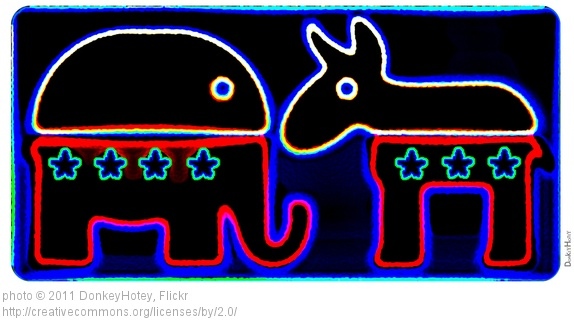In a recent article by Bryan Roberts’ at Relevant Magazine, he offers us 7 things to remember about politics as Christians. Here’s that list:
1. Both political parties go to church.
2. Political talk radio and cable “news” only want ratings
3. Those who argue over politics don’t love their country more than others.
4. Thinking your party’s platform is unflawed is a mistake.
5. Scripture tells us to pray for our governing leaders (2 Tim 2:1-4) and to respect those in authority (Romans 13:1-7).
6. Don’t be paranoid.
7. Stop saying, “This is the most important election in the history of our nation.”
From my perspective, these were all really good pieces of advice. Given the current cultural and political climate of the church, many people need to hear these seven things!
This article might fit as a good complement to what I wrote about a week ago on this very issue:
When American politics lure us into media driven arguments about the next best hope for now until 2016, let’s say: “that’s it!” Our hope is in something even better, a political rebel, killed by the government of his day and raised to life by God. This hope dethrones the powers (visible and invisible) and compels us to pray “thy kingdom come, thy will be done, on earth…”
Clearly, we both are trying to demonstrate the ways in which the media and hype often determine the ground rules of political discourse among Christians in America.
But I wonder if something deeper is revealed by these seven areas to remember?
What I think it reveals the most is how much hope we put into politics in general.
In a recent speech, vice president hopeful Paul Ryan called America the “hope of the world.” Does that sound like anything Christians might say about a Person rather than a nation? How odd that Christianized sloganeering hardly phases a majority of Christians in the United States. Many cheered this on. And to be clear, the left side of the aisle uses the same lyrical patterns as well.
During the reign of the Caesars in the first century, when the governmental powers made claims like this, the Christians twisted the phrase to point to actual truth.
“hhhhmmm…. Caesar is Lord, huh? Nope… Jesus Christ is Lord!”
“The Empire thinks that Caesar’s birthday is the “beginning of good news?” They must not have heard the story of Jesus’ birth, where actual angels declare this to be the truth about him!”
“Caesar and his empire – Savior? Nope! Peace-bringer? Nope again! And no, Caesar didn’t fulfill “all the hopes of earlier times” – only Jesus did!”
We need to take the language of American political discourse and excommunicate it from our rhetoric. What if we did something as simple as proclaiming and living into the reality that “Jesus Christ is Lord?”
As helpful as the seven steps offered in the Relevant article are, they reveal how far the church has strayed from its provocative and prophetic role as a voice standing outside of the system.
The very fact that the author (rightly) has to tell people that “both parties go to church” says a lot about the way Christians continue to play into their games. Then, it’s even more telling that he says that “thinking your party’s platform is unflawed is a mistake.” Why in the world should Christians even claim a political party in the first place? Doing so renders our voice flaccid.
Jesus is Lord. Democrats aren’t. Republicans aren’t.
We may have some ideas that resonate with either (or hopefully) with both sides, but identifying with a party simply lures us into playing into their hand.
Let’s mourn and repent of the fact that an article identifying these seven areas is even needed in our day and let’s return to our ultimate allegiance: King Jesus!












